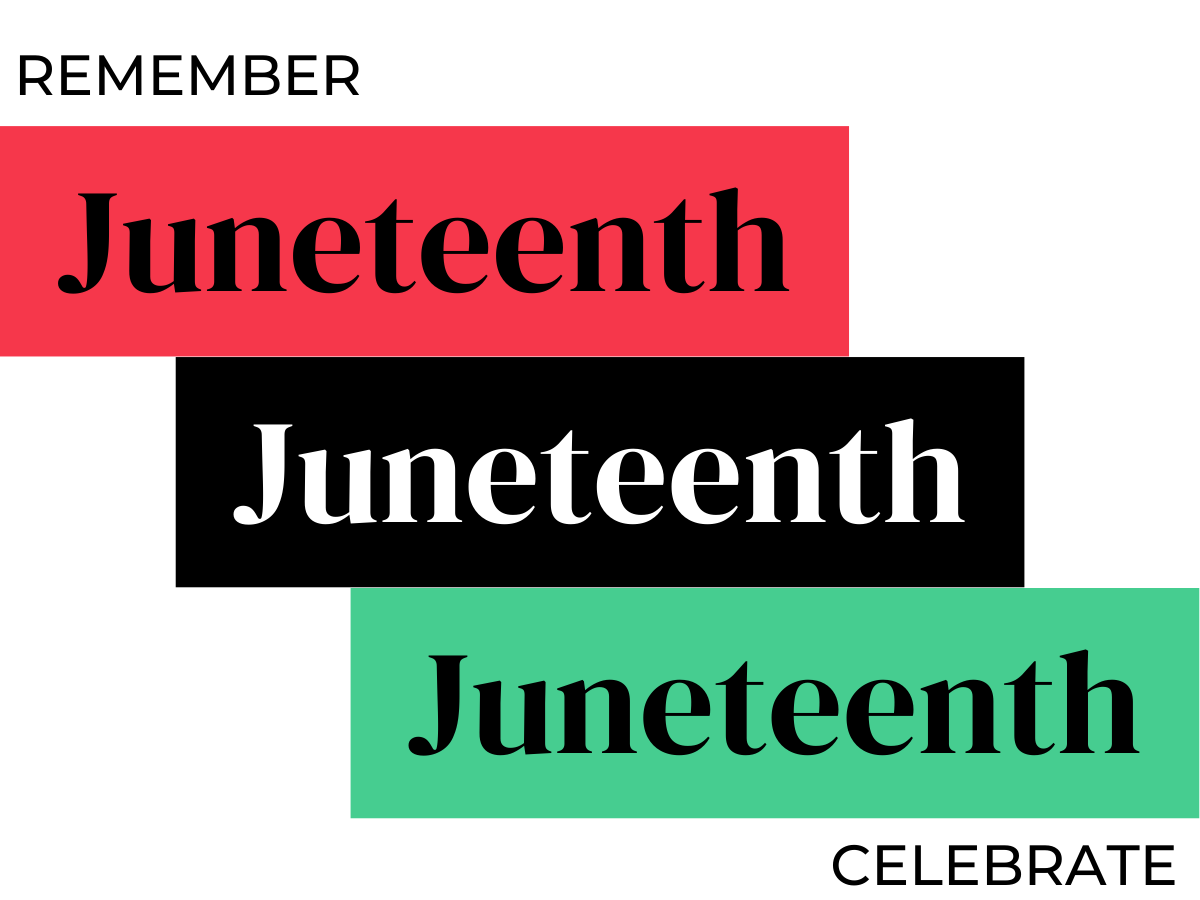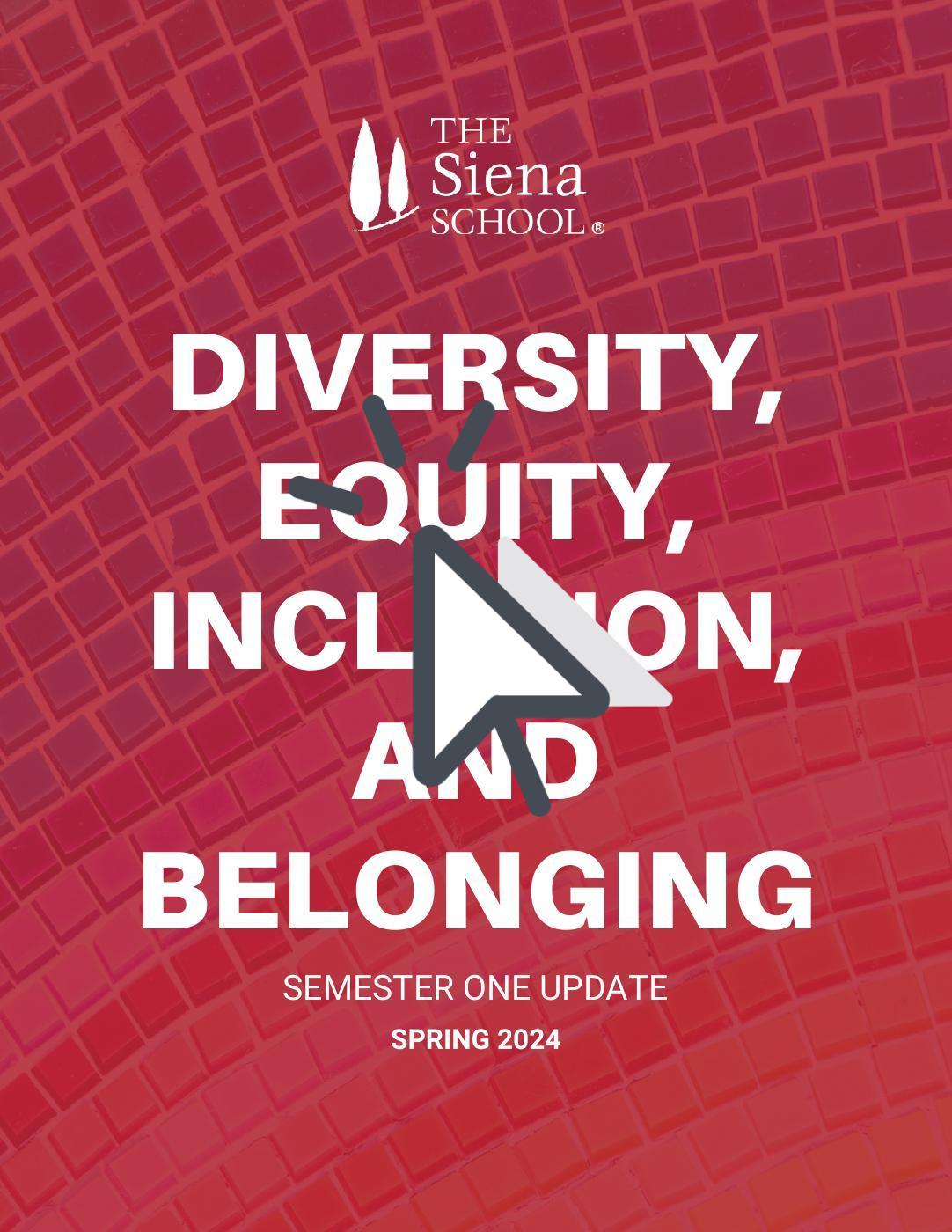Empowering students with language-based learning differences

Siena Blog



The Siena School Blog
Discover, Learn, Celebrate, and Empower
Welcome to Siena's blog, your source for helpful, cutting-edge resources tailored to teachers, parents, and other advocates in the learning differences community. We are dedicated to providing a wealth of curated knowledge spanning various topics, ranging from dyslexia advocacy and awareness to classroom teaching strategies, heritage month profiles, and social and emotional health.
Juneteenth: Celebrate Freedom

As part of Siena’s continuing mission of community outreach, diversity, and education, we’re joining many educators and others across the country in commemorating Juneteenth (Freedom Day). June 19, 2020, is the 155th anniversary of the day in 1865 when the last enslaved persons in Texas were emancipated. This was two-and-half years after President Lincoln emancipated enslaved people in Washington, DC, on April 16, 1862.
We recognize that, although this is an historically significant day, the work that Juneteenth represents must continue each day. Here are some resources for all of us to engage with and discover ways to celebrate:
- An original order of emancipation in the National Archives from June 19, 1865.
- A list of commemorations, protests, vigils, and other events in the DC area for today, as well as this brief history of Juneteenth’s extra historical significance in light of recent events.
- See the “Juneteenth: A Celebration of Resilience” from the African American History and Culture Museum
- Locally, the Frederick Douglass National Historic Site in southeast DC, where Douglass lived late in his life and, among other work, finished his final autobiography, Life and Times of Frederick Douglass. Douglass also attended the dedication of Lincoln Park in northeast DC. As of 1974, Lincoln Park also features a statue of famed educator and civil rights activist Dr. Mary McLeod Bethune.
- Look at these resources and material from Ashleigh Lawrence-Sanders of the University of Dayton and Cheryl Hicks of the University of Delaware.
- Read this editorial from Dr. Tera Hunter from Princeton about Juneteenth.
- DC’s Loyalty Books has a fantastic list of Antiracist Reading Recommendations, as well as a virtual book club about antiracist works. Also check this Juneteenth Reading List from Random House and this one from Colours of Us for children’s books.
- Juneteenth Book Fest on YouTube will continue sharing material related to this important day—and everything it entails. They also have an online bookstore.
See this message to our community from our Head of School and Founder, as well as our growing list of anti-racism resources.
College-Level Writing Tips

It’s always important for high school students to think about the skills, mindsets, and habits they’ll need as their academic careers advance. With many activities and events still canceled, this summer presents a good learning opportunity: high school students can take the time to build their writing and related skills to carry them through next fall.
Learning How To Write in College
Before coming to Siena, I was an English and First-Year Writing professor in the Washington, DC, area for 15 years, so I’ve worked with a lot of students on their approaches to writing and research. The most important thing that new college students can do is this: be open to learning the new and, sometimes, unlearning the old. I always reminded students on the first day of class that what worked well in high school wouldn’t necessarily work as well in college. This learning/unlearning ranges from time management and working independently, to structuring papers and performing online research.
In The Siena School's summer writing workshops for rising 9th–11th graders, Siena’s English teacher Maya Furukawa will focus on learning the steps in writing through multisensory strategies, graphic organizing, and assistive technology to compose persuasive writing while applying feedback to proofread and edit one’s own work. This summer could be an excellent opportunity to learn without the pressure of a grade, as this workshop will focus on skill building.
Developing Writing Skills in High School
Here are some more tips for writing in college, although it’s never too early for high school students to start developing their writing skills and work habits, as well as hone their skills in preparation for the next level:
![]() Embrace the processes of writing and research: note taking, outlining, planning, scheduling, brainstorming, drafting, reviewing, and revising. These are all important steps in the journey from idea to a finished project, and they can’t be done in a day. Always give the process time to develop. If an assignment is due in three weeks, use the three weeks to plan and draft it. Taking breaks in the course of a day, weekend, or week helps ensure quality writing. Bookmark these resources from the University of Chicago, Psychology Today, and Oregon State University to learn about how breaks help writers process information and improve their writing output.
Embrace the processes of writing and research: note taking, outlining, planning, scheduling, brainstorming, drafting, reviewing, and revising. These are all important steps in the journey from idea to a finished project, and they can’t be done in a day. Always give the process time to develop. If an assignment is due in three weeks, use the three weeks to plan and draft it. Taking breaks in the course of a day, weekend, or week helps ensure quality writing. Bookmark these resources from the University of Chicago, Psychology Today, and Oregon State University to learn about how breaks help writers process information and improve their writing output.
![]() Remember that A’s and other consistent successes in high school will not easily translate to A’s in college. Even if, for example, an assignment can be done all in one sitting the night before it’s due, there are no guarantees about its quality or fit for the rubric. Rushed writing also leads to avoidable errors (e.g., spelling, overlong paragraphs, wrong details, and missing citations) that affect assignment grades.
Remember that A’s and other consistent successes in high school will not easily translate to A’s in college. Even if, for example, an assignment can be done all in one sitting the night before it’s due, there are no guarantees about its quality or fit for the rubric. Rushed writing also leads to avoidable errors (e.g., spelling, overlong paragraphs, wrong details, and missing citations) that affect assignment grades.
![]() For students who’ve been taught the AP Essay format, be prepared to leave it in high school and upgrade your writing approaches. It’s designed as something to write all in one sitting without books or notes to consult, which is virtually the opposite of a college paper or other assignment. Think about it like an app that isn’t compatible with a new phone—the app worked well when it needed to, but now it’s time for something more advanced.
For students who’ve been taught the AP Essay format, be prepared to leave it in high school and upgrade your writing approaches. It’s designed as something to write all in one sitting without books or notes to consult, which is virtually the opposite of a college paper or other assignment. Think about it like an app that isn’t compatible with a new phone—the app worked well when it needed to, but now it’s time for something more advanced.
![]() Read the syllabus and assignment handouts closely, and then reread and review them when working. Professors sometimes give specific instructions on them that they don’t fully explain in class about the assignment length, number and type of sources to use, and format. Remember that professors still hold students responsible for following instructions even if they weren’t explicitly addressed in class.
Read the syllabus and assignment handouts closely, and then reread and review them when working. Professors sometimes give specific instructions on them that they don’t fully explain in class about the assignment length, number and type of sources to use, and format. Remember that professors still hold students responsible for following instructions even if they weren’t explicitly addressed in class.
![]() Always make sure to have whatever notes or book(s) needed for a writing assignment close by—preferably close enough to grab easily. Avoid trying to quote from memory or generally describing something from a book when a quote or something else concrete is better. Notes and books are especially great tools when they’re reread, so don’t hesitate to review a passage or chapter before writing about it.
Always make sure to have whatever notes or book(s) needed for a writing assignment close by—preferably close enough to grab easily. Avoid trying to quote from memory or generally describing something from a book when a quote or something else concrete is better. Notes and books are especially great tools when they’re reread, so don’t hesitate to review a passage or chapter before writing about it.
![]() Don’t hesitate to ask questions, but remember that professors might not give all the guidance or answers. They might ultimately expect students to figure out most of a problem independently after giving some advice. If students have questions about an assignment on Day 1 of working on it, they should ask them on Day 1.
Don’t hesitate to ask questions, but remember that professors might not give all the guidance or answers. They might ultimately expect students to figure out most of a problem independently after giving some advice. If students have questions about an assignment on Day 1 of working on it, they should ask them on Day 1.
![]() Use professors’ office hours—and not just during the week an assignment is due. In general, professors—especially first-year writing ones—like seeing students plan and outline their work, so meeting with one to talk through ideas and drafts can be helpful. It also shows good motivation and self-advocacy.
Use professors’ office hours—and not just during the week an assignment is due. In general, professors—especially first-year writing ones—like seeing students plan and outline their work, so meeting with one to talk through ideas and drafts can be helpful. It also shows good motivation and self-advocacy.
![]() Use all the available resources the college or university offers, such as the Writing Center and Disability Support Services. It’s always a good idea to look into academic support options as early as possible to avoid the beginning-of-semester rush.
Use all the available resources the college or university offers, such as the Writing Center and Disability Support Services. It’s always a good idea to look into academic support options as early as possible to avoid the beginning-of-semester rush.
![]() Understand that writing and editing are two discrete processes, so avoid the trap of trying to self-edit while writing. Scheduling your work is a great way to keep your writing and editing separate since it gives you ample time to do them. Write first to express thoughts, and then go back to edit, expand, and clean up. Reading papers out loud when editing is a great way to notice errors, SpellCheck misses (e.g., “defiantly” instead of “definitely”), long and awkward sentences or paragraphs, and other issues that affect an assignment’s grade. Using assistive technology like Read & Write and NaturalReader to have documents read aloud can also help students catch errors or awkward writing. (See this resources page from the University of Michigan for more options.)
Understand that writing and editing are two discrete processes, so avoid the trap of trying to self-edit while writing. Scheduling your work is a great way to keep your writing and editing separate since it gives you ample time to do them. Write first to express thoughts, and then go back to edit, expand, and clean up. Reading papers out loud when editing is a great way to notice errors, SpellCheck misses (e.g., “defiantly” instead of “definitely”), long and awkward sentences or paragraphs, and other issues that affect an assignment’s grade. Using assistive technology like Read & Write and NaturalReader to have documents read aloud can also help students catch errors or awkward writing. (See this resources page from the University of Michigan for more options.)
Learning to write well is a lifelong process. Teachers, professors, and tutors are continually developing their approaches to writing, research, and revision. Remember, too, that no parental communication with professors might be a big adjustment in college, so be prepared to self-advocate and be independent.
The more that students can start preparing themselves for writing and managing their time in college now, the more likely they are to succeed once the first assignment is due.


